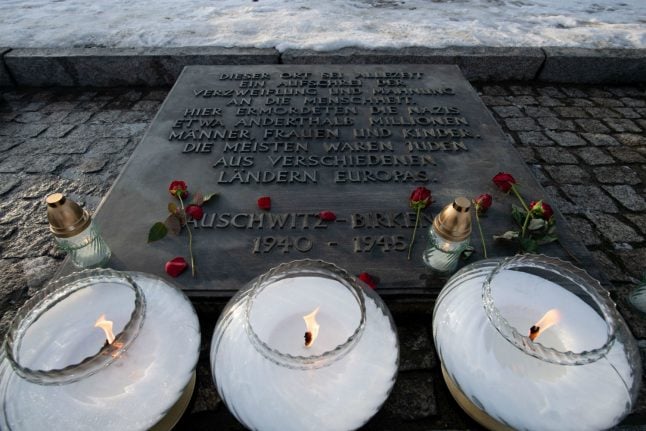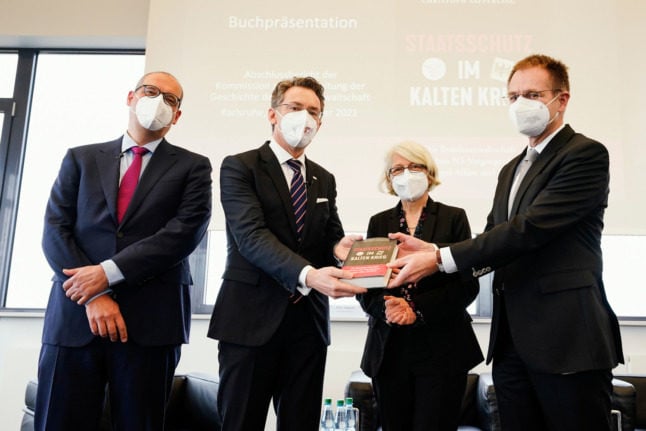“Hitler's Germany fed on fascist ideology… But all the evil came from this (German) state and we cannot forget that, because otherwise we relativise evil,” said Morawiecki at an official ceremony at Auschwitz.
SEE ALSO: Children of Nazi and their victims share family history to mark Holocaust
“The Polish state acts as the guardian of the truth, which must not be relativised in any way,” he said.
“I want to make a promise here to (preserve) the complete truth about that era,” he added, in a speech in the southern city of Oswiecim to mark Holocaust Memorial Day.
Sunday's ceremony at Auschwitz was attended by a number of former prisoners at the camp.
Morawiecki's speech comes after last year's row over a Polish law that made it illegal to accuse the Polish nation or state of complicity in Nazi German crimes.
After protests from Israel and the US, Poland amended the law to remove the possibility of fines or a prison sentence.
Morawiecki appeared to be responding to an idea often mentioned in Poland, which claims that historians try to attribute responsibility for the genocide of Jews exclusively to the Nazis, without recalling the role played by the
German state and Germans as a nation.
Auschwitz-Birkenau was set up by Nazi Germany in occupied Poland. With one million Jews killed there between 1940 to 1945, the camp has become a symbol of Nazi Germany's genocide of the European Jews.
More than 100,000 other people including non-Jewish Poles, Roma, Soviet prisoners of war and anti-Nazi resistance fighters also perished there.
Last February, Morawiecki had to defend himself against criticism from Israeli Prime Minister Benjamin Netanyahu who denounced “unacceptable” comments he made about the Holocaust.
Morawiecki's office insisted that he has repeatedly opposed Holocaust denial and anti-Semitism in all its forms.



 Please whitelist us to continue reading.
Please whitelist us to continue reading.
Germany, as a state, has always felt responsible for the crimes of their past. If you’re saying that normal conscripts should also be punished. That’s wrong. Most young men were required to serve in the military, over and above any objections they may have had about the ruling government. Those who served their country, through ordinary military service, should not be refused pensions. If any one of them were even slightly involved with the crimes of the regime, then yes, pensions should be denied. Germany has, and is, trying to mend it’s wrongs of the past, by being a contributing member of a united Europe. One, free of conflict. If we’re going to continue rehashing the past, we’re never going to move ahead to the future.